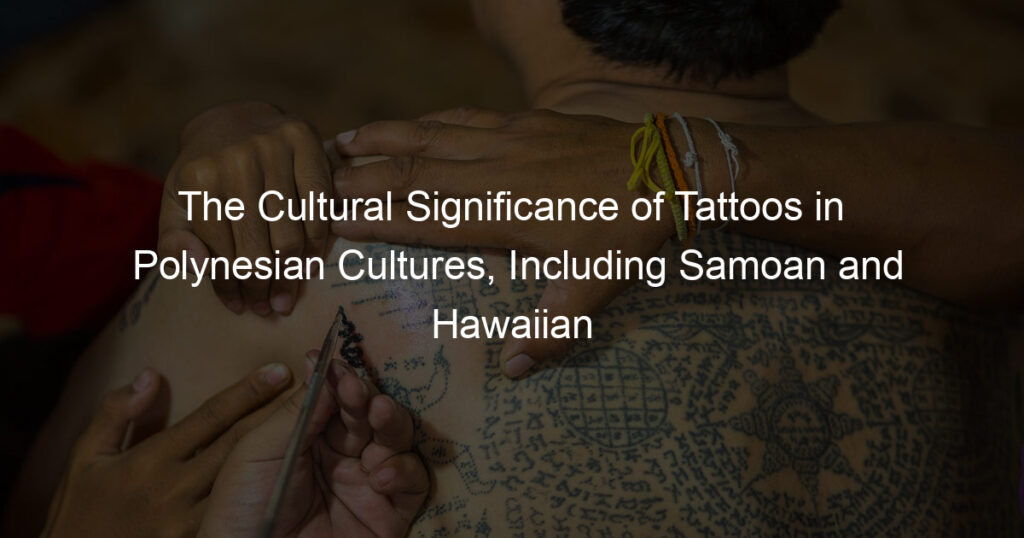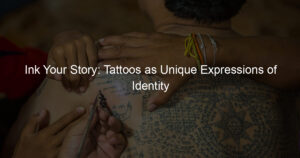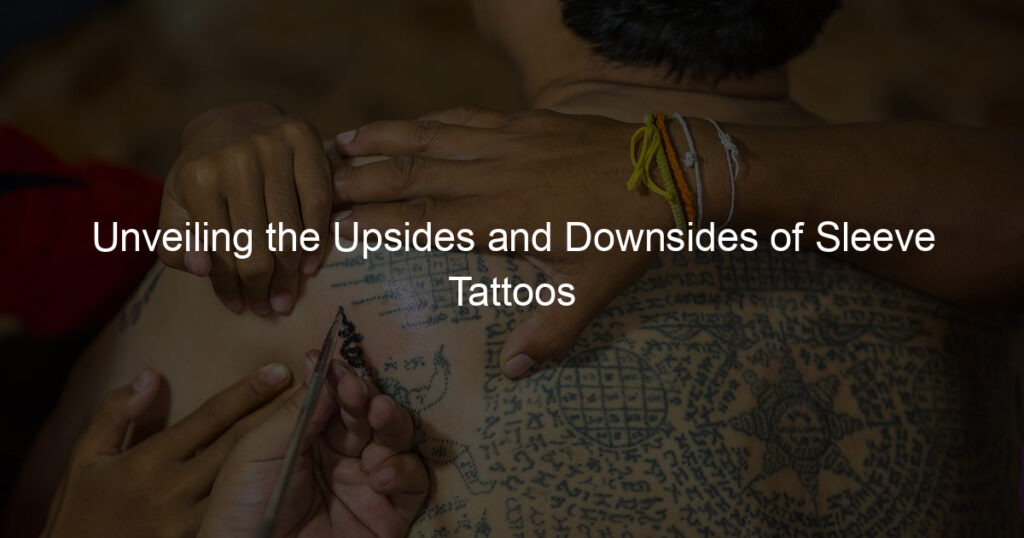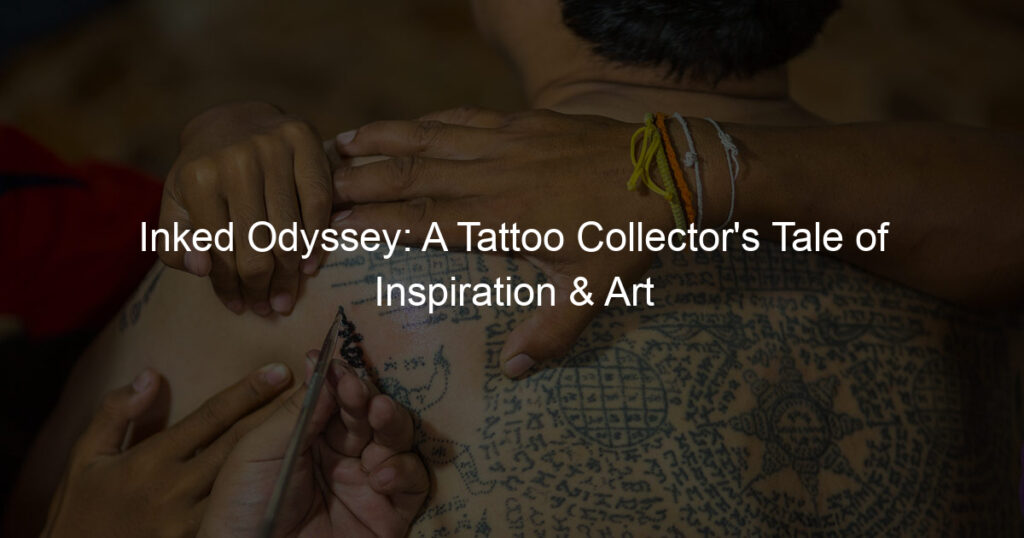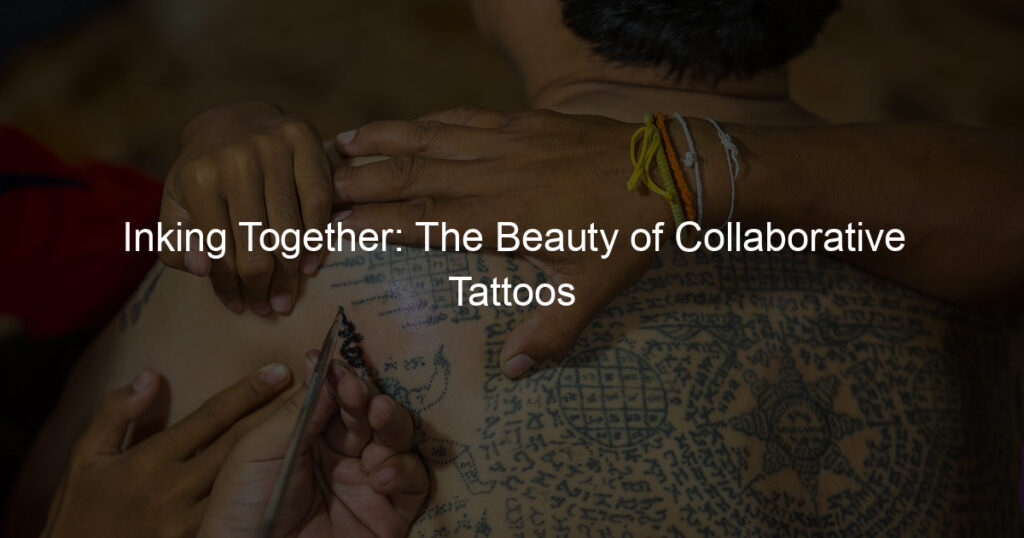In Samoa, it is said that the first tattoo was given by a woman named Sina. She was a skilled artist and did beautiful work.
The tradition of Samoan tattooing is now over 3,000 years old and has been passed down from generation to generation. It is an important part of their culture and heritage.
Polynesian tattooing was originally done with sharpened shells or bones. Today, they are still done using these traditional methods as well as modern equipment. The cultural significance of tattoos in Polynesian cultures is very important.
They are seen as a way to express one’s identity, signify status and rank within society, and most importantly – show strength and courage in the face of adversity.
In Samoa specifically, women were given tattoos as a coming-of-age ritual. It was a sign that they were now ready to take on the responsibilities of adulthood and be considered an adult member of society.
What is the cultural significance of Polynesian tattoos?
Many have viewed Polynesian tattoos as a form of visually stunning art, but recently they’ve also become symbols of cultural pride.
As those living in the Pacific Islands no doubt know, tattoos are not only a powerful form of representation and identity, but also carry spiritual and societal implications.
This means that tattoos play an important role in inheriting Hawaiian culture from one generation to the next.
Tattoos can n provide a connection to a person’s community, represent bravery and courage, honor relationships between families, mark social milestones, and even serve as protection against bad luck.
With such importance placed on Polynesian ink, it’s easy to see why these beloved tattoos remain meaningful today.
What is the significance of Samoan tattoos?
Samoan tattoos are not only incredibly m meaningful, but they also carry with them centuries of tradition and history.
Hand-tapped using a mallet and ink made from natural materials, the intricate designs that make up these tattoos often depict various stories from Samoan culture.
Showing allegiance to family and tribe is of huge importance in Samoan communities, which is reflected in these tattoos; where special patterns are used for chiefs and ranking members of society, whereas other tattoos mark a series of passage.
It’s fascinating to think of the hundreds of years this unique form of artistry has been in practice – evidence that makes it clear just how regional and significant these tattoos remain today.
What is the significance of Hawaiian tattoos?
Hawaiian tattoos are steeped in tradition and play an important role in Hawaiian culture and identity. Tattooing has been practiced on the islands since ancient times, gradually evolving to reflect ever-changing values.
Over time, tattoo designs have come to be associated with Hale (tribe) and Kū’oko’a (independence). They also represent a spiritual connection between individuals and their ancestors, signifying courage and strength.
For some Hawaiians, these tattoos mark significant milestones in life such as adulthood or a special recognition earned in the community.
Ultimately, Hawaiian tattoos serve as a reminder both to the wearer of their tribal roots and to others of the wearer’s heritage and place within the community.
What is the origin of Polynesian tattoos?
Polynesian tattoos are steeped in history, with their origins believed to date back thousands of years. They were first created by skilled artisans who served as a form of ritual markings and symbols used to communicate important messages and signify certain life events.
The traditional tools used included pieces of bone, shells, or other material typically tied to a stick or awl. The patterns were hand-made by tapping the tools on the skin to create a pattern, producing the distinctive look associated with Polynesian tattoo designs.
In modern times, the same underlying principles remain—honoring tradition and heritage through the art form—while changes in execution allow for an even more unique expression of individual identity.
Summary
Tattoos have always been an essential part of Polynesian cultures, serving as both a sign of identity and a mark of status. Today, they continue to hold great significance for those who wear them – providing not only a connection to their culture but also a sense of pride and empowerment.
So, the next time you see someone with a Samoan or Hawaiian tattoo, take a moment to appreciate the history and meaning behind it.

